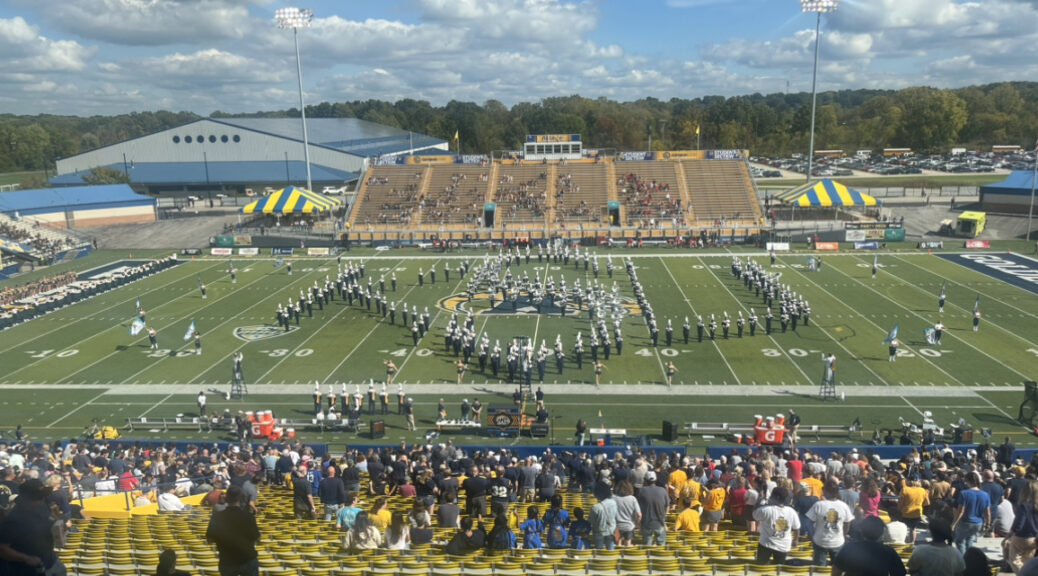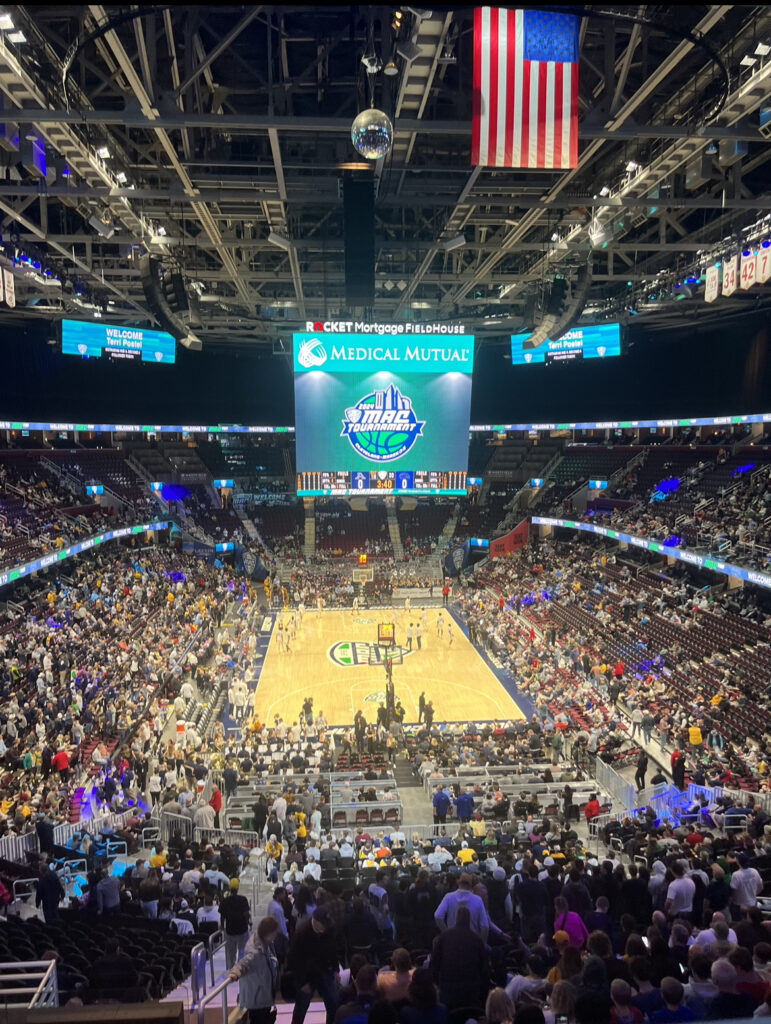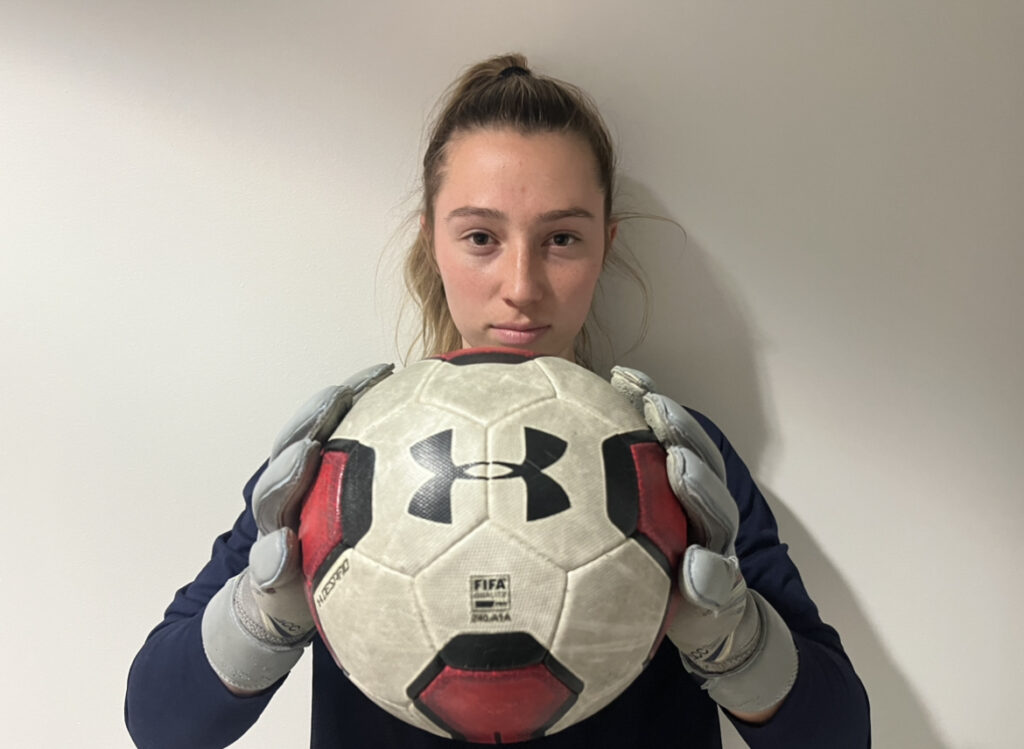
Mental Health Problems in Student Athletes Decline Over Past Year in NCAA Study
Wether it’s on the field, in the classroom, and everywhere in between, student-athletes are always looking to be at the top of their game.
But an asset that gets overlooked with those individuals are their mental well being.
But according to a recent study conducted by the NCAA, it seems to be that student-athletes are back in the game.
Data was taken from around 23,000 student-athletes across all three divisions of NCAA sanctioned sports beginning in September of 2022 through June 2023 as two key facets were looked at between male and female demographics.
Constantly feeling overwhelmed and being mentally exhausted.
In men’s sports, it went down from 25% when the same study was done a year prior, to 17% when it comes to constantly feeling overwhelmed. In being mentally exhausted, it went down from 22% to 16%.
In women’s sports, 44% of athletes felt constantly overwhelmed as compared to 47%, and 35% felt mentally exhausted, down from 38%.
” I feel like we have gone back to pre-pandemic levels, which quite honestly, are still quite high.”
Dr. Sam Minar
Dr. Sam Maniar is a sports psychologist and the founder of Center for Peak Performance in Hudson, and he says that he wasn’t surprised by those numbers.
“The numbers at their peak were during the pandemic.” says Maniar. “But now, I feel like we have gone back to pre-pandemic levels, which quite honestly, are still quite high.”
Heidi Marshall is a junior goalkeeper on the Kent State soccer team and she felt that she had to take on a lot concerning her mental health over the last year.
“I have faced a lot obstacles that have affected my mental health,” Marshall said. “But I faced them head on, and I feel as though my mental health in the last year has gotten better.”
Marshall also says that Kent State University does a great job in terms of making sure that their student-athletes are taken care of mentally.
“They (Kent State) do a very good job on providing resources for their athletes,” Marshall described. “At the beginning of our season, every year we have someone come talk to us about mental health and if we are struggling, they give us a paper with all the different resources on it. Our coaches are extremely supportive of it too. If you are struggling and having a bad day, they will let you take a mental health day off.”
When it came to comfortability in talking to their coaches, the study showed that female athletes dropped 9% compared to pre-pandemic numbers and 8% for men.
“Our coaches are extremely supportive of it too. If you are struggling and having a bad day, they will let you take a mental health day off.”
Heidi Marshall
Marshall gives a couple reasons as to why that could be the case.
“Mental health has gotten more attention in the NCAA so they are giving athletes more resources,” said Marshall. “Another thing is athletes struggling with mental health has gone down. Now to challenge this question a bit, I believe that there are athletes that have stopped going to coaches for help because they feel as if they can’t do anything to help them.
Dr. Maniar was shocked at the drop and gave his reason as to why.
“The surprise part for me was how less comfortable student-athletes are with their coaches,” said Maniar. “Maybe we’ve taken our eyes off of it. It was more of a focal point during the pandemic as some seasons were shortened or canceled and the number one thing for us was competition and the lack thereof. Now that we’ve gone back to ‘normal’, we are now seeing pre-pandemic numbers both good and bad.”
According to the study, the one topic that female student-athletes wish their coaches would talk about them the most was mental wellness at 67%. For male student-athletes, the vast majority wished their coaches talked about proper nutrition, as that tallied in at 50%.
The study also shows that 50% of all participants would feel comfortable to see a therapist on campus. Maniar says that student-athletes should use those resources if they have interest in doing so.
“The vast majority of Division I athletics have some sort of clinician available to their student athletes and the vast majority of people who seek out counseling, do improve,” explained Maniar. “It’s important that the people giving those services understand the unique culture of athletics, so that student-athletes are more comfortable reaching out.
Dr. Maniar has been in practice for the last 20 years, serving athletes from the high school level in places like SPIRE Academy in Geneva, where some of the top amateur athletes in the country play, to professionals that include members of the NFL’s Cleveland Browns, Olympic athletes, and professional golfers.
But when it came to the college level, where he currently serves at the University of Akron, Lake Erie College, and the Toledo Women’s Soccer team, he realized that their man focus was coming off the heels of seasons getting canceled due to COVID-19, and helping student-athletes move forward.
“It’s important that the people giving those services understand the unique culture of athletics, so that student-athletes are more comfortable reaching out.”
Dr. Sam Minar

“Our biggest priority a few years back was obviously the pandemic as well as some higher profile student-athlete suicides that happened as well,” says Maniar. “So I think we put more attention and focus to it and I’m happy to see this numbers be the way they are because of it.”
A trend that was found in the study was that when broken up by division, when asked if they were feeling mentally exhausted, the answer of either “constantly” or “mostly every day” from female student-athletes rose the smaller the division, with 33% in Division I, 44% in Division II, and 47% in Division III.
When male student-athletes were asked the same question, the answer of “constantly” or “mostly every day” to the question of if they were feeling mentally exhausted, it was the same among all three divisions at 17%.
One could make the argument that the sports world was the industry that was hit the hardest due to the COVID-19 pandemic.
Games were gone. Seasons were gone. And it saw an effect on the mental health of the ones that left it all out on the playing field.
And now, four years after the pandemic wrecked havoc on the globe, it seems to be that student-athletes are performing on the field and off, when it comes to their mental health.

